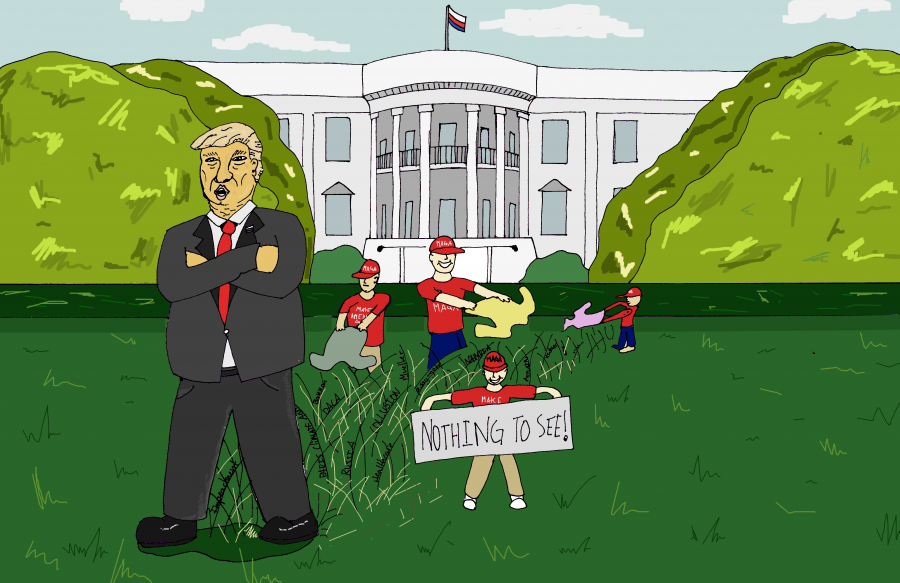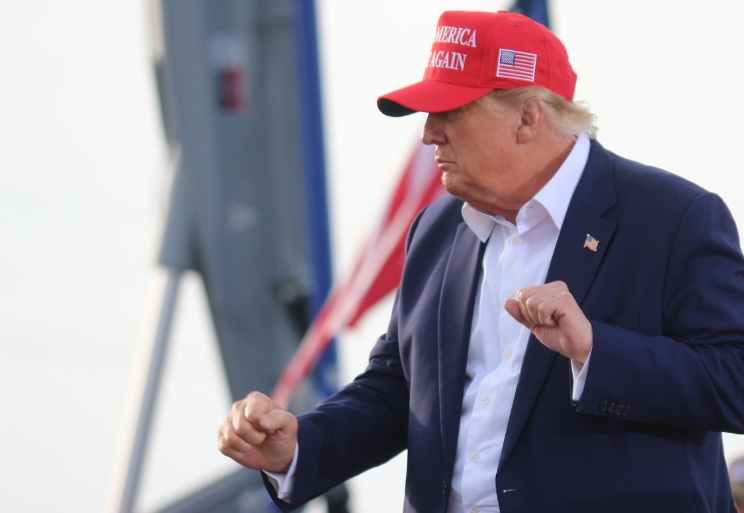“I am going to take care of everybody. I don’t care if it costs me votes or not. Everybody’s going to be taken care of much better than they’re taken care of now.”
That was President Donald Trump on healthcare in 2015 during the presidential primary.
On September 26th, 2017, the GOP health care bill died in the senate for the second time. Trump’s promise to take care of “everybody” has produced no legislation even indicating a change, much less an improvement. Yet, he’s still managed to lose votes for it. For those who backed President Donald Trump—many of whom supported Trump on the promise of systemic reform—the disappointment is overwhelming.
As of Nov. 13, Trump’s general approval ratings have been some of the lowest seen at such an early point in any presidency. Over the last 65 years, U.S. presidents have had approval ratings has high as 87 percent (Truman in 1945) to as low as 35 percent (Nixon in 1974) in their first year in office. Currently, Trump stands at 38.1 percent.
The biggest lack of support for the Trump Administration is in a faction of the GOP. Ideologically, there are not stark divides—both groups want to cut taxes, kill Obamacare, and expand the military, among other things—and the House is still somewhat loyal to Trump. However, Trump’s inconsistency and impulsivity is driving Congress away. Senator Bob Corker (R-TN) told CNN that “Honestly, I enjoy the fact that Congress, the Senate in particular, is charting a course and developing legislation and, let’s face it, leading on all of these issues… It’s pretty nice the way things are.” Corker’s words reflect the fact that Congress is pushing Trump away in response to the president’s behavior. As just one example, Republicans in Congress have been ignoring Trump’s wishes on issues of national security and foreign policy and even propose new regulation to keep the White House’s power in check. Mieke Eoyang, a national security analyst and a former congressional aide, told CNN that “[especially the republican members of congress] are not getting the kind of adult leadership out of the White house that would allow you to give deference to the White House. So you see Congress stepping up to take a much more aggressive role… for the first time in a very long time.”
Despite this, the fundamental problem lies with those whom Trump has wronged who choose to do nothing about it. If every average American is not enough of an example, take Senate Majority Leader Mitch McConnell (R-KY). McConnell has stood against Trump in his repeated bashing of members of the Republican party, including Senators Jeff Flake (R-AZ) and John McCain (R-AZ), and in response, Trump has been fighting McConnell on his plans for reelection and promotion. Yet McConnell has declined to add to his past, mild criticism of Trump. While McConnell may have been comfortable a couple months ago expressing his frustrations over the “artificial deadlines” that the Trump administration has imposed, he no longer feels the same. And he is not alone. Trump is so unpredictable and aggressive that many politicians are afraid of opposing him.
The real horror is in the fact that people had no problem criticizing former President Barack Obama for the same things that Trump is getting away with today. In 2015, Obama was accused by the GOP of being too close to Putin because, as former governor of Florida Jeb Bush tweeted, he “allowed Russia more influence in Syria and Iraq.” The GOP claimed that Obama led a “lawless, dictatorial” presidency and trampled recklessly over the rule of law and institutional limits. Obama was even accused of overusing his executive power by bypassing Republicans in Congress who were blocking his agenda. Trump is arguably much more unstable, abusive, and unpredictable when it comes to his power. Yet he has received no more criticism, if not much less.
Trump’s presidency is too alien to the concept of American politics to warrant this kind of weak response. The endless vacations and golfing excursions for which Trump abandons his post come as no surprise to anyone anymore. The whole situation, beginning with Trump running for President in the first place, is incredibly stunning. Democrats and Republicans alike are slowly accepting the unreal presidency as a new reality, and are therefore having a harder time fighting it.








